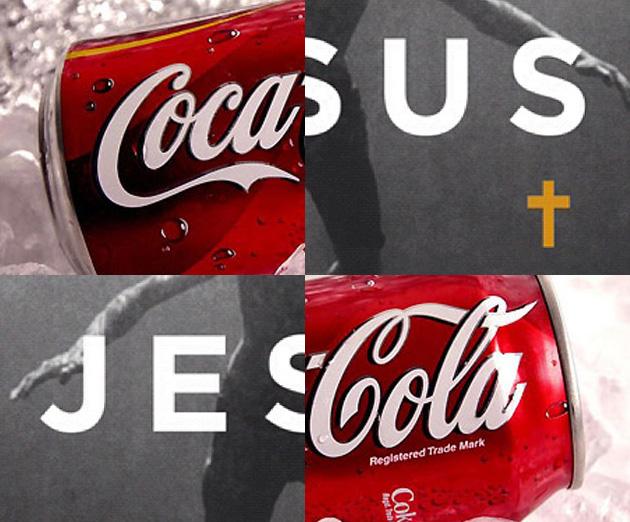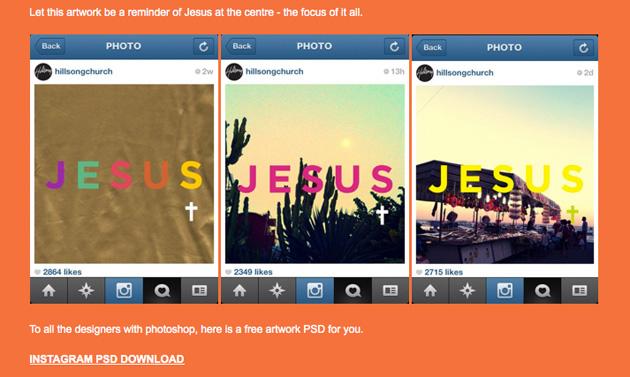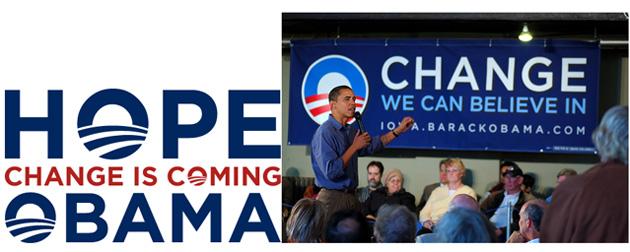
“God is building a home. He’s using us all – irrespective of how we got here…” Eph 2.
Many call it the House of God, some a cult, others an enterprise. No matter which way you choose to define it, there is no denying that the Hillsong Church has forged an impressive presence on a global scale.
Next year as they reach their 30th anniversary, Hillsong Church (HC) founders Brian and Bobbie Houston celebrate the growth of their burgeoning congregation starting out at just 45 Sydney siders in 1983, into a phenomenon that has operating parishes throughout 14 cities, spanning every continent but Antarctica… It might be too cold for God that far south?
One impressive feat of the HC is the extraordinary revenue and publicity amassed from 40 albums released in the last 20 years by their own record label, Hillsong Music Australia. According to a recent report by Mumbrella, one of these albums went platinum while another achieved #1 on the mainstream music charts.
In addition to the chart success, the label has sold just shy of 12 million albums worldwide (cha-ching!) and they can regularly be found populating the iTunes Top 10 in both Australia and the United States.
Established in the early 1980s, this multimillion dollar grossing Pentecostal (aka ‘born again’ or ‘happy clapping’) Christian Church has become not only one of our nations most influential youth brands, but what’s more, one of few denominations of Christianity that is actually increasing its presence globally.
According to a report by Business Review Weekly, Pentecostalism has become Australia’s fastest-growing branch of Christianity, outstripping all but the Catholic Church in attendance (which boasts about four times the amount of practicing parishioners). So what is this astonishing growth attributed to? Surely it can’t be God alone attracting these numbers (which includes 131,773 likes on the Hillsong Church facebook page).
The increasing appeal of HC may, like any other successful commercial brand, be due to effective use of the core marketing principles – whether they are being implemented intentionally by the Church or otherwise.
The success and demand for how and what Hillsong offers by way of a Product (to put it in marketing vernacular) is very strong; so much so, that professionals of the branding industry could probably learn a thing or two from observing how the HC gets the word (or should I say The Word) out. After all, as they continue to climb in global influence surely it stands to reason that regardless of their fist-pumping and banner-waving, HC is, at the end of the day, a successful entrepreneurial enterprise.
While my clairvoyant senses anticipate scoffs at the proceeding comparison between Hillsong and Coca-Cola as established and globally recognized brands, successful marketing parallels between the two help define Hillsong’s success and suggest why – from a marketing perspective – they have hardly skipped a beat.

Coca-Cola
Exceeding a century in trade and outshining all other globally recognised words except ‘OK’, it goes without saying the brown bubble-fix is the Muhammad Ali of its kind. Not to mention a powerhouse in the world of branding. Everyone knows Coca-Cola: What it provides. How much it costs. What it looks, tastes and feels like. So how is HC on the road to becoming the Coke of spirituality?
Hillsong Church
Ok, yeah so they have got a historically successful concept as their main selling point (God), but according to the steps defined by businesswoman Julie Chance in her article Steps to Successful Corporate Branding it’s quite clear that the Hillsong marketing strategy is definitely on point.
If you compare HC the brand to Coca-Cola the brand, the similarities are eye opening.
1. Defining Your Product: Tick!
Coca-Cola: Thou art a liquid, fizzy, sugar and caffeine loaded refreshment i.e. a soft-drink.
Hillsong Church: King James’ version of the bible states in John 3:16 (http://www.kingjamesbibleonline.org/John-3-16/), that “For God so loved the world, that he gave his only begotten Son, that whosoever believeth in him should not perish, but have everlasting life.” i.e. Hillsong have one fundamental ‘product’ on offer. Apart from community, acceptance and a reason to believe – three aspects of humanity almost all human beings strive for – HC offers a priceless product that simply can’t be bottled. That being… yep – salvation. A product of ever-lasting life well defined and marketed in a way Mumbrella writer Robin Hicks believes to be better packaged than any other in the world – even Coca-Cola.
2. Identifying Your Target Market: Tick!
Coca-Cola: Hip and young generations, thou art thirsty! i.e. preferably (but not restricted to) thirsty youth, the energetic, attractive and/or ‘trendy’… in layman terms: those able to maintain and contribute to Coke’s long-lived, credible, idolised brand and image.
Hillsong Church: Hip and young generations thou art ‘unsaved’, ‘lost’ or ‘wandering’; i.e. preferably (but not restricted to) youth, the energetic, attractive and/or ‘trendy’ currently lacking Jesus or affiliated with no, or any other religion other than Pentecostalism… as well as they whom are further able to maintain and contribute to HC’s so far increasingly influential brand and image, in a place of influence, with a heavy and open pocket and/or keen to rock out… Did you know they even have their own online community called Hillsong Collected, where they give followers other ways to interact with the brand.

Note that they have used ‘Gotham’, a very popular font used in the design world over the last few years that other contemporary brands have adopted for campaigns:

They even refer to the activity as ‘branding’.

3. Knowing your Competition: Tick!
Coca-Cola: Thou contending refreshments; i.e. Pepsi, Schweppes, Dr. Pepper, Fanta, water, tea etc.
Hillsong Church: Thou contending religions; i.e. as Hillsong preach their ‘one way’ to eternity message (based on scripture above). The competition is any other practicing faith out there… be that Islam, Confucianism or Spiritism – if Jesus isn’t their number one homeboy, then they aren’t the greatest.
4. Developing Awareness: En route…
Coca-Cola: Thou art publicised and recognised almost everywhere and have been increasingly so since 1866; i.e. In her guidelines to marketing success, Julia Chance says that customers need to be exposed to a product 5 to 15 times before they are likely to think of that product when the need arises. “Needs often arise unexpectedly”, she says “You must stay in front of your clients consistently if they are going to remember your product when that need arises.”
Hillsong Church: Thou art becoming increasingly publicised and, subsequently, increasingly globally recognised; i.e. whenever or whatever ‘need’ may arise in relation to the products offered by HC – be that a relationship with God, a sense of community, encouragement of talents, something to believe in… salvation… a ‘feel good’ moment – in any case, although Hillsong’s global awareness continues to climb, they may have a little work to do when up against competing ‘feel good’ brands like Cadbury, Nestle and Absolute Vodka… Gen Y representatives might prefer a chocolate bar or stiff drink as a quick fix for feeling good instead of church attendance…
5. Building Credibility and Being Consistent: Hmmm…
Coca-Cola: Thou art credibly delicious and have been consistently so since 1866; i.e. not much has changed since Coke as a patent medicine was carbonated to become a soft drink in the late 1880s. Its logo hasn’t been altered much from the original version, Globally, its product is obtainable without much effort, and its flavour continues to be one of the most recognised on the face of the earth. It is because of consistency that Coke is one of the worlds most sought after, leading and credible brands and products.
Hillsong Church: Thou art difficult to achieve… i.e. according to Julia Chance, not only must target markets be aware of a product (which is, in this case, salvation), they must also have a positive disposition toward it. By merely looking at the current religion-aggravated state of our world, it’s plain to see that regardless of Hillsong’s success to date, when compared to Coke – not close to the same percentage of humanity have such a positive stance toward the Christian faith (particularly that of Pentecostalism) and the product it has on offer.
Regardless of HC’s consistency in the access, presentation and delivery of their product (which Chance identifies as three tribute qualities to a brand), along with their ‘customer service’ (church services/outreach) and quality of product (if there’s even a way to measure such) – unattractive criticisms continue to threaten Hillsong’s current and future credibility.
Deliberated in a report by News Limited journalist Jennifer Sexton are numerous examples opposing all that defines ‘credible’. Discussed are both confirmed and unconfirmed reports of HC’s fraudulent behavior, mistreatment of alienated members of the congregation, peer pressure, a suspicious $100 million property portfolio… fraudulent behavior… revenue driven intentions, misappropriation of multi-million-dollar commonwealth grants, fraudulent behavior and… more fraudulent behavior.
Although a piece very one-sided – aptly tagged ‘greed’, ‘shallow’ and ‘anti-christ’ – regardless of its truth or lack thereof, it is but one article which exemplifies what may forever hinder HC from becoming wholly credible… that being: humanity’s forever conflicting opinions and ideals about religion. Plus, there’s science and growing antitheist and atheist movements that oppose the HC cause directly.
Apart from such contentions about Hillsong’s credibility, in a world lacking pertinence, eager for acceptance and eternal assurance, Hillsong Church has just the product to continue having a global impact, and continue its position as one of Australia’s most powerful brands. So behold brand strategists. Listen and take note, because when it comes to their marketing campaign Hillsong is running on more than just a prayer.
Words by Jacquie Lennon



